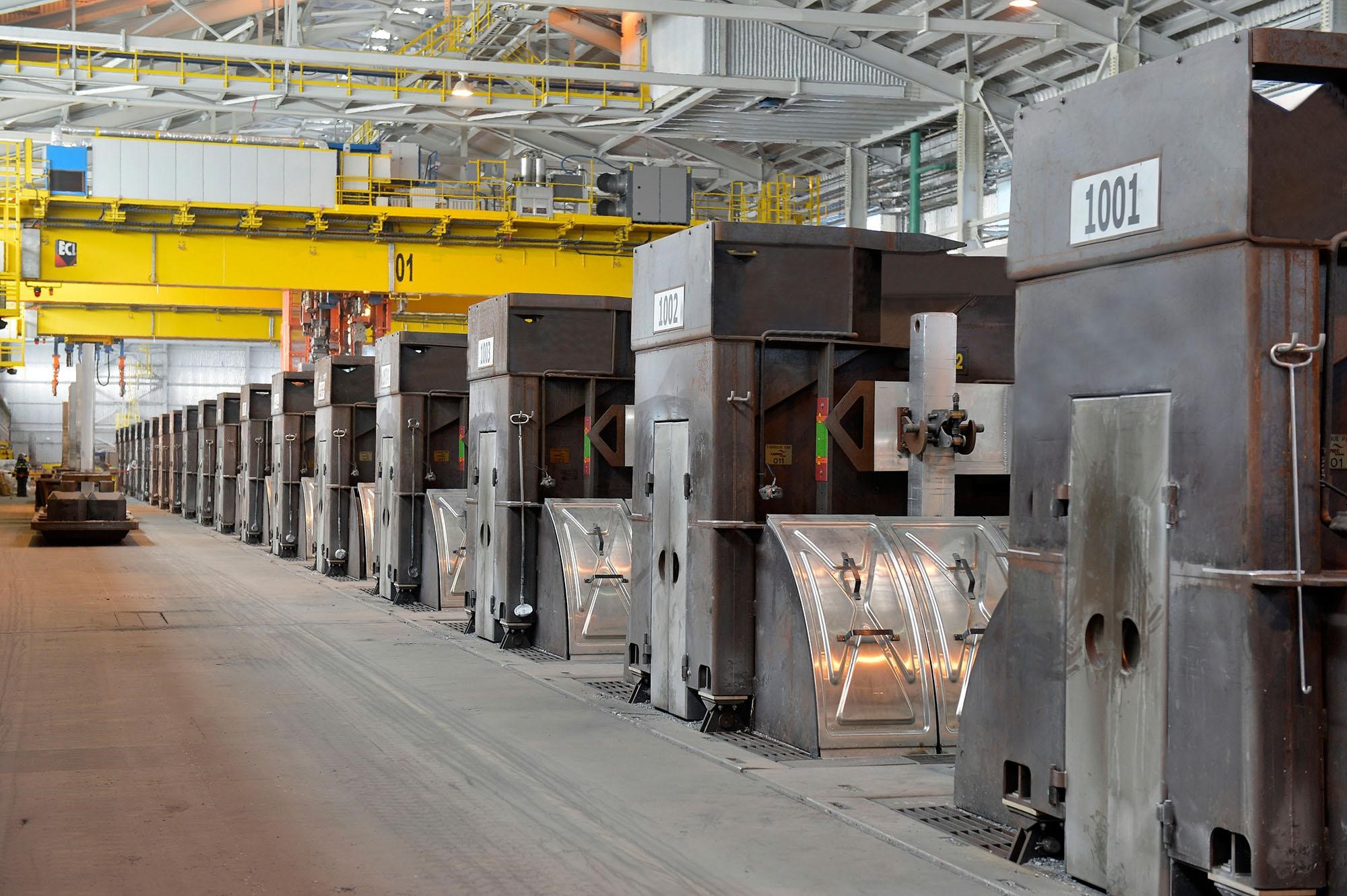

According to a report on Monday, June 12, Rio Tinto will expand its state-of-the-art AP60 aluminium smelter at Complexe Jonquière in Canada with an investment of $1.1 billion (CAN$1.4 billion). This expansion will offset the closure of potrooms at the Arvida smelter on the same site and counterbalance the 170,000 tonnes of capacity loss.

The report says the Quebec government will finance up to $113 million (CAN$150 million) of the project's total investment, with which 96 new AP60 pots will be installed, increasing the smelter's capacity by about 160,000 tonnes of primary aluminium per year. Hence, the total number of AP60 pots in the smelter will become 134, with a capacity of around 220,000 tonnes per annum.
Rio Tinto's in-house AP60 smelting technology is one of the most efficient and lowest carbon technologies currently available at a commercial scale. When combined with the hydropower used at Rio's operations in Canada, the technology generates one-seventh of greenhouse gases per tonne of aluminium production compared with the industry average and half the emissions compared to the technology currently used at the Arvida smelter.
Construction of the expanded project is expected to take two and a half years, making the commissioning of the new pots possible by about the first half of 2026. Rio Tinto also hopes to start the previously announced 30,000 tonnes of new recycling capacity at Arvida in the first half of 2025. These facilities together will ensure Rio Tinto's high-quality, low-carbon aluminium supply to its customers from the transportation, construction, and electrical industries.
Rio Tinto Chief Executive Jakob Stausholm said: "This investment is aligned with our strategy to decarbonise our value chains and grow in materials essential for the energy transition. Our AP60 technology is already proven and producing some of the lowest carbon aluminium in the world, thanks to the expertise of our highly qualified workforce and access to renewable hydropower. This is the most significant investment in our aluminium business for more than a decade and it will further strengthen Rio Tinto's high-quality and low-carbon offering to our customers as they also work to reduce their own carbon footprint."
He added, "I would like to thank both the Government of Canada and Government of Quebec for their support in progressing this project. We are also continuing to work together on the future implementation of the ELYSISTM zero carbon smelting technology at our Quebec facilities."
The expanded project will reportedly create up to 1,000 new jobs during the peak of construction and about 100 permanent jobs during maintenance.



Responses






